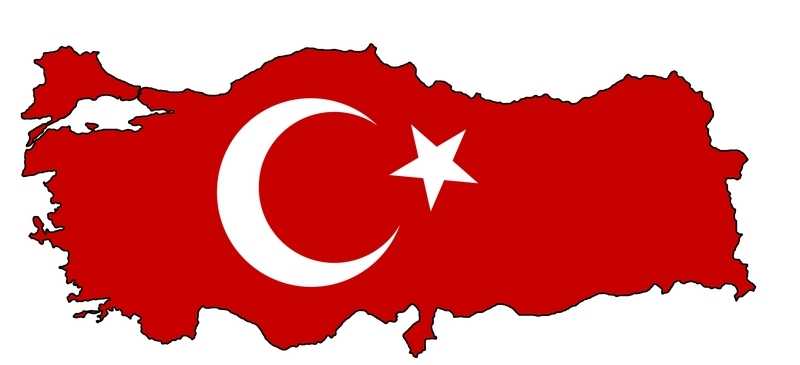
Absorption capacity – the wrong debate
On November 8th, the European Commission published its new strategy report on enlargement. A non-event: drafts had been widely leaked to the press; and the most explosive question – whether accession negotiations with Turkey should by wholly or partly suspended because of Cyprus – has been put off until December.
The Commission tries to be upbeat. It talks about progress in the candidates and the EU’s will to keep its enlargement promises. But it cannot paper over the fact that today enlargement fatigue on the part of the EU meets accession pessimism on the part of the member-states.
Perhaps the most interesting part of the strategy paper is hidden in an annex on “absorption capacity”. The EU’s nappy test, Nick Watt of the Guardian calls it half-jokingly. But the question of absorption capacity is dead-serious. It is not only, as the Commission paper argues, a question of how many interpreters we need in Brussels or how much Turkish farmers could cost the EU budget. It is the question of whether enlargement helps the EU to become stronger and more prosperous.
The EU’s concern about absorption capacity is neatly summed up in the following quote:
“The prospect of further enlargement at a time when the full consequences of the preceding one have not yet been absorbed must give rise to concern. The Commission considers therefore that any further enlargement must be accompanied by a substantial improvement in the efficiency of the Community s decision-making processes and strengthening of its common institutions.”
This is not from the 2006 strategy paper. It’s from the Commission’s 1976 opinion on Greece’s membership applications. The EU has always been worried about the effect that newcomers would have on its institutions, its budget and policies, its identity and standing in the world. This is legitimate. An overstretched, gridlocked or internally divided EU would be bad for its existing members and unattractive for newcomers.
However, absorption capacity is a vague and politically charged term. A new House of Lords report on enlargement (to be released on Novmeber 23rd) argues that it could become a dangerous tool in the hands of those who want to keep out Turkey or stop enlargement altogether.
The Austrian EU presidency used the term to sever the link between the Western Balkan applicants (all small, so presumably “easy to absorb”) and Turkey (“too big, too poor, too different”). But this attempt backfired. When EU foreign ministers met their counterparts from the Western Balkans in Salzburg earlier this year, they stressed that absorption capacity was key to all future enlargements. The European Parliament followed with similar statements, as did the Council and a number of politicians from EU capitals. Enlargement Commissioner Olli Rehn tried to limit the damage by explaining that absorption capacity was not a new criterion for enlargement. But not all EU politicians agreed. Bavaria’s minister-president, Edmund Stoiber, for example, insists that the EU’s absorption capacity is more important than a candidate’s state of preparedness.
People and politicians in candidate countries are worried: “Does it matter whether we work hard?” they ask, “The EU will not let us in anyway.” The debate about absorption capacity could weaken the leverage the EU has over countries wishing to join. Given how much trouble looms in the EU’s immediate neighbourhood, that is a big risk.
The Commission report is a laudable attempt to deconstruct the term, and render it less politically explosive. To start with, the Commission insists that integration capacity is a better term: no country wants be “absorbed” by the EU. Then it breaks up the term into three questions:
1) Is the EU able to take in new members? Here the Commission promises to analyse the potential impact of each newcomer on EU institutions, policies and the budget.
2) Are the candidates well prepared enough to fit in neatly? To make sure they are, the Commission promises tougher conditions, closer monitoring and more help during future accession negotiations.
3) Are the people in the EU ready to accept more countries? The Commission rightly says that the main responsibility for explaining enlargements – past and future – lies with EU governments. But it promises to help by producing more comprehensible information.
Neatly divided into its different elements, absorption capacity becomes a to-do list for the EU rather than a threat to the candidates. After all, says the Commission, it is “first and foremost a functional concept”.
But this implies that the EU is a static construct that needs a few technical fixes before it can take in more countries. In reality, the EU is adjusting constantly in response to new challenges, such as fighting terrorism, securing energy or coping with globalisation. Successive enlargements have helped the EU in that process.
The accession of Turkey and the countries of the Western Balkans would spread democracy and wealth further across the European continent; it would strengthen the EU’s hands in volatile Middle East and Black Sea regions; it would add young, eager workers to an ageing EU economy; and it would encourage West European countries to find a way of living harmoniously with Muslim immigrants and neighbours (not only Turkey but also parts of Bosnia and Albania are predominantly Muslim).
New members are not just a burden to be “absorbed”. They are an asset too. Future enlargements will make the EU stronger, more tolerant and more competitive. The debate about absorption capacity cannot capture this because it only looks at one side of the enlargement balance sheet.
Katinka Barysch is chief economist at the Centre for European Reform
